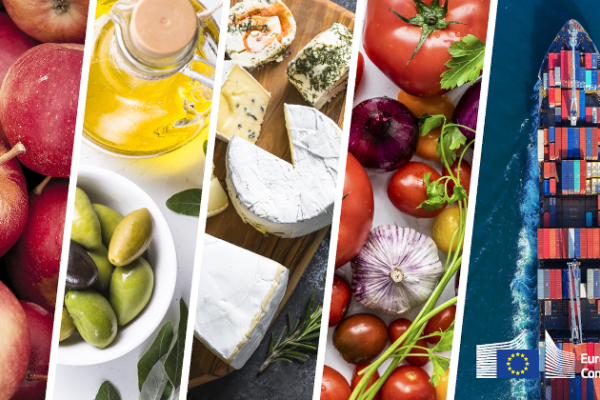Achieving economic sustainability
Economically viable farms are at the heart of agriculture in the EU. Without the ability to deliver a stable and rewarding income in the short and long term, agriculture would not be able to supply its essential products and services for society.
The common agricultural policy (CAP) therefore includes several instruments to ensure the economic viability of farms. The economic instruments of the CAP may also contribute to and should not harm the environment or social sustainability.

The CAP supports rural communities and facilitates the essential roles that agriculture and forestry play in wider society.

The common agricultural policy upholds environmental rules and encourages green farming.
Economic sustainability in practice
Safeguarding the economic viability of farms
Although farmers can do a lot to improve the sustainability of their operations, economic sustainability largely depends on external factors. Consequences of geopolitical, natural and changing climatic environments have become increasingly apparent across Europe in recent years. The disruption brought by unstable weather conditions (droughts and floods), geopolitical events (Ukraine invasion), diseases (COVID-19 pandemic), etc. have sometimes resulted in lower yields, market disturbances and volatility in farm income. Therefore, the CAP includes adequate instruments with the view to safeguarding and protecting the short and long-term economic viability of farms.
The CAP aims to achieve economic sustainability by ensuring viable farm income and resilience, enhancing market orientation and increasing competitiveness, and improving the farmers’ position in the value chain.
These objectives may be attained with the following policy instruments:
- Support viable farm income and resilience across the Union to enhance food security: through the implementation of a fair system of income support, providing tools to help manage risks and achieve greater equality in the agri-food supply chain and a level playing field with imported products;
- Enhance market orientation and increase competitiveness: through the provision of rural development support for investment in, for example, modernisation or cooperation, together with financial instruments; this objective is also underpinned by the EU policy on geographical indications and quality schemes;
- Improve the position of farmers in the value chain: through the provision of specific support to sectors, namely fruit and vegetables, apiculture, wine, hops, olive oil and table olives and other sectors.
More information
Key policy objectives for the CAP 2023-27
- 18 MAY 2020
Sectoral interventions
The role of producer and interbranch organisations
Sectoral interventions bolster the position of farmers, including via producer organisations and associations of producer organisations, and enhance their resilience and competitiveness. Beyond resilience and competitiveness, these organisations offer numerous benefits. For instance, they enable farmers to collectively invest in technologies that might otherwise be financially unfeasible for them individually, thereby fostering economically, socially and environmentally sustainable production practices.
Moreover, sectoral interventions contribute to strengthening farmers' positions in the value chain by granting producer organisations exemptions from certain competition rules. This essentially empowers farmers to leverage their collective bargaining power.
Sectoral programmes
Recognising the multifaceted advantages of producer organisations, the EU funds the setting-up of such organisations, as well as sectoral programmes, encompassing various objectives. These programmes encompass activities such as production planning and organisation, supply concentration, product placement in the market, modernisation, research and development of sustainable production methods, including climate change mitigation and adaptation, and innovative practices and techniques.
The role of knowledge and innovation
Knowledge and innovation can help farming to remain profitable in both the present and the future:
- research and innovation can provide new techniques and technologies to improve productivity without putting extra strain on the environment, while the farm advisory system can ensure that farmers are kept informed about the latest developments and improvements;
- the agricultural European innovation partnership (EIP-AGRI) fosters and spreads innovative ideas to help farmers to produce “more and better from less”.
Explanatory Note on Data Monitoring and Evaluations
The Explanatory Note on Data Monitoring and Evaluations on sectoral interventions presents the forms that constitute the reporting documents, which competent authorities in EU countries are required to transmit to the Commission in accordance with Annex V to Implementing Regulation (EU) 2022/1475.
- 21 NOVEMBER 2023
- 24 MAY 2023
- 24 MAY 2023
- 24 MAY 2023
- 24 MAY 2023
- 24 MAY 2023
Related links
Ensuring sustainable farming by linking income support to respect for rules.
Eco-schemes support farmers who adopt or maintain farming practices that contribute to EU environmental and climate goals.
Agriculture and forestry can contribute to the economic sustainability of the EU by producing biomass to fuel the bioeconomy.
The European Commission monitors and evaluates producer organisations’ activities, based on a common set of performance indicators.
Reports and findings of evaluations and external studies completed on programmes, measures, and practices relating to farmers and farming.
Reports and findings of evaluations and external studies completed on programmes, measures, and practices relating to rural areas.


